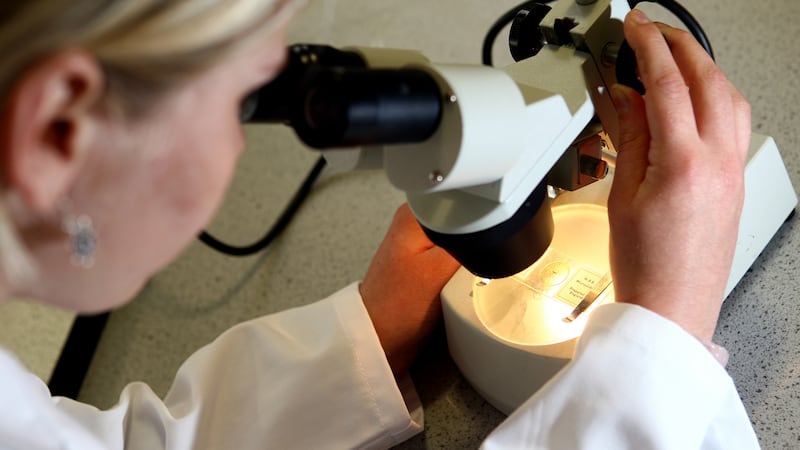On The Irish News recollections from the Duke of York bar (November 20), as I recall Gerry Adams was a pleasant enough young barman. Now some 50 years later all I can ask is: What went wrong – the beer wasn’t that bad?
Like the Grand Old Duke of York himself , Gerry Adams later led a generation of young nationalists up the militarist hill of support for the IRA ‘war in the north’ and then, again like the Grand Old Duke, he led them back down again. The trouble is that the going up of the militarist hill was much quicker that the coming down that same hill. Some hills are of course like that – especially when they are on a sectarian terrain dominated by the historic fears and grievances of a deeply divided people.
In the late 1960s in the Duke of York bar I had often listened to wiser heads than me commit to the primacy of ‘bridge building over bunker building’ and to the primacy of mass political action by a risen people over any form of elitist military action. Like many in the broad Labour and trade union movement then I thought that this was strong stuff and that we all had a clear political choice between people power and militarism. And I also thought that everyone in the Duke of York bar, including the barmen, were listening. Where indeed did it all go wrong?
3,500 lost lives and nearly 50 wasted years later are Irish militarists ever going to admit that the political strategy behind the IRA war was a bad strategy and that the politics of Irish unity by enforcement was always simply bad politics?
I hope that someone in the new leadership of Sinn Féin will have the political courage to recognise that the foundation of Dáil Éireann in January 1919 was the most revolutionary act of the Irish democratic revolution.
I also hope that the new president of Sinn Féin will have the political ‘bottle’ – to use the polite word – to recognise that their party support since the 1930s for Irish militarism was always acting in defiance of a successive democratically elected Dáil Éireann. As such support for the post-civil war IRA was always and will always remain, as the great Labour and trade union leader James Connolly warned, nothing more than a callous contribution to ‘a carnival of reaction’.
BRIAN BRENNAN
Dublin 8
Suggestions welcome to save us going over the cliff
There was an excellent article by Brian Feeney (November 15)about the role of the DUP in the Westminster Parliament and its probable effect upon the farming community in Northern Ireland. He outlined convincingly the immense price it would have to pay to come to a trade agreement with the US. The hard border between the north and the Republic, so sought by the hard Brexiteers and the defenders of ‘our own wee country’, would equally damage the prospect of trade with the large bloc of countries belonging to the EU.
In the light of Mr Feeney’s article, it is very difficult to understand why the DUP should bind itself to keep in power so unreliable a government as the present Conservative Party at so great a risk to its own country and to many of its people. A small bribe, as yet unpaid, will not do much to assist our health, education and infrastructural services, to say nothing of the harm done to our farming industry. An unprejudiced perusal of the Feeney article should be enough to see its common sense.
One hopes that Mr Feeney will address himself to the role that Sinn Féin should play at present. Even one ignorant in politics but with some knowledge of basic arithmetic can see how they are totally failing, through their policy of abstention, to defend the interests of all of us. Their seven votes could be vital in maintaining our link with Europe which they recognise as important.
Granted, they say their ideology does not allow them to take up seats in the British parliament, although it is hard to understand how they can then justify accepting their MP salaries. Perhaps they could find their way to both salving their conscience and protecting Irish interests by taking either of the following steps: resign their Westminster seats and advise their supporters to support the election of candidates who favour retaining a strong link with the EU. Take up their seats but let their supporters know it is only on a temporary basis until the crisis has been resolved with the help of their votes. I would like to know if Brian Feeney would approve either of these ideas or if he has any better suggestions to save us from going over the cliff.
IGNATIUS McQUILLAN
Derry City
It’s time SF was honest with victims’ families
Republicans can understand why someone like Gerry Adams would not claim to have been a member of the IRA for to make such a submission could have legal consequences. Equally many might understand how Martin McGuinness was able to publicly admit to a period in the IRA which he may have been convicted for but whether he left when he said he did is something that republicans will be
conscious of.
This week Sinn Féin met with Theresa May and afterwards voiced its indignation that a Statute of Limitations should be placed on investigations into ‘security force’ involvement into killings during the conflict here, effectively an amnesty. What Sinn Féin did not say is that in reality that amnesty would apply to all killings here, regardless of the perpetrators, prior to 1998. Really it is nothing more than a revamping of the ‘Northern Ireland Offences Bill’ that the British government intended to introduce in 2005 which Sinn Féin was silent on until there was a backlash from republicans and nationalists that these so-called ‘security forces’ should be held to account. Twelve years later they have not, and will not, be held to account.
Victims of British state violence should not be shocked. There has never been any intention to hold their forces to account.
The British public would not stand for it. If you want to accept the Sinn Féin peace process then ultimately you will have to accept this.
You will never receive justice for your murdered family members. It is time that Sinn Féin was honest to the families of those victims killed by British forces.
SEAN O FIACH
Belfast BT11
Needless risk to children
Right now in the Home Office rules the government doesn’t recognise the close family of refugee children beyond their parents. This means that many children escaping war and violence can’t be safely reunited with their family in the UK without first making a deadly journey in to Europe.
As the UK government works on updating its rules as a result of leaving the EU, an amendment to the European Union (Withdrawal) Bill New Clause 53 would make sure the UK’s rules are fixed to stop this needless risk to children’s safety. As this comes forward in parliament we hope that MPs will work together to fix this problem. I urge Irish News readers to write to their MP to ask them to add their name to the amendment and voice their support during the debate. Together we can show the world that Britain will not turn its back on those who need us most.
LILY CAPRANI
Deputy Executive Director, Unicef UK
Lack of criticism
Not a word of condemnation from the British Legion or any of the unionist politicians about the abuse of the poppy being used on a mural of a suspected loyalist killer. But do we on the nationalist side expect any other reaction? No, because we know the poppy has different meanings here. It is seen as a symbol of racism and sectarianism, defying the cause it was initially set up for.
JOSEPH KENNEDY
Dunmurry, Co Antrim







